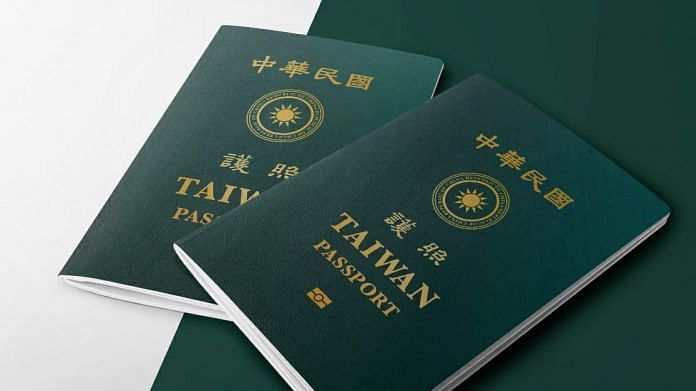The more China tells the world that Taiwan isn’t a country, the more Beijing’s adversaries are starting to treat it like one.
Before celebrations for Taiwan’s National Day on Saturday, Beijing’s embassy in New Delhi was reported to have issued a letter telling India’s media not to refer to it as a country or to Tsai Ing-wen as its president. Indians responded by helping the hashtag #TaiwanNationalDay go viral while banners with the Taiwanese flag were hung outside the Chinese embassy.
“Hats off to friends from around the world this year, #India in particular, for celebrating #TaiwanNationalDay,” Taiwanese Foreign Minister Joseph Wu wrote in a Twitter post on Saturday.
Instead of marking Taiwan’s independence, a red line that Beijing has warned could trigger an invasion, the day commemorates a 1911 uprising in the central Chinese city of Wuhan against China’s last imperial dynasty. That led to the creation of the Republic of China, which leader Chiang Kai-shek then brought to Taiwan seven decades ago when he fled as the Communist Party took power.
For many in Taiwan today, the Republic of China seems like a historical relic with diminishing relevance for the democracy of 24 million people. Taiwan has long abandoned Chiang’s goal of reconquering what he knew as the mainland, and polls show that more and more Taiwanese don’t want any unification with China.
But celebrating the Republic of China is strategically useful for Tsai’s government. It allows her to sidestep the question of formal independence, avoiding a potentially devastating conflict with China while providing cover to create a distinct political and cultural identity for Taiwan — ultimately undermining President Xi Jinping’s goal of subsuming it under Communist Party rule.
“Taiwan has become more and more adept at finding space behind the ‘red lines,’” said Jonathan Sullivan, director of China Programs at the University of Nottingham Asia Research Institute. “Beyond a formal ‘declaration of independence,’ it is hard to think of a line that is not malleable or has actually worked.”
Military tensions have risen in recent months, with Chinese fighter jets moving ever closer to Taiwan as the Communist Party ramps up rhetoric, warning Tsai against moves that push it further away from China. It has been particularly angered by the Trump administration, which has stepped up weapons sales to Tsai’s government and sent over the most senior American officials to Taiwan in decades to discuss the pandemic and economic ties.
Also read: Here’s what could happen if China invaded Taiwan
In Tsai’s address at a national day event on Saturday, she called for talks with Beijing while vowing to defend the island.
“We are willing to facilitate meaningful dialogue,” she said, adding that “showing weakness and making concessions will not bring peace.”
Hu Xijin, editor of the Communist Party-run Global Times, said the remarks were Tsai’s “softest tone” in years and “obviously less arrogant than her past remarks.” He attributed the shift to China’s increased threats of war, which his newspaper has helped disseminate.
“The Chinese mainland must maintain strong military pressure, which can be triggered at any time, over the island of Taiwan, to ensure that certain forces on the island restrain themselves,” Hu wrote.
China has long used the threat of force to intimidate Taiwan. It fired missiles into waters near the main island of Taiwan in the late 1990s simply because then-leader Lee Teng-hui was allowed to speak at Cornell University. It also expressed fury at his proposal for Taiwan and China to have “special state-to-state” relations.
But things have changed as Taiwan drifted ever further from the Chinese identity that Chiang’s Kuomintang party imposed on it via the Republic of China. Now Tsai and officials from her ruling Democratic Progressive Party regularly call Taiwan a country on social media.
“We don’t have a need to declare ourselves an independent state,” Tsai told the BBC shortly after she was re-elected by a landslide in January. “We are an independent country already, and we call ourselves the Republic of China, Taiwan.”
For many Taiwanese, the Republic of China was akin to a foreign occupation when the Kuomintang party arrived after Japan’s surrender in World War II. A violent uprising against the KMT prompted officials to massacre Japanese-trained civil servants, lawyers and doctors who could’ve administered an independent Taiwanese state.
Taiwan endured decades of martial law under one-party rule before democratic reforms brought competitive elections, and in 2000, it elected the first non-KMT leader. During Tsai’s inauguration speech in 2016, she hailed the fact that the Taiwanese people had taken control of the Republic of China: “My dear fellow Taiwanese,” she said. “We did it.”
Tsai’s government has sought to assert more of a Taiwanese national identity, including by redesigning passports this year to highlight the word “Taiwan” while minimizing “Republic of China.” At the same time, people who support a Taiwanese identity also take pride in Republic of China emblems such as the flag, according to Margaret Lewis, a law professor at Seton Hall University.
“The symbols from the past have taken on new and complex meaning in the present,” she said.
This broader shift doesn’t bode well for Xi’s plan to one day unite China and Taiwan, preferably through coercion rather than war. That has some observers particularly worried.
“No trend is going in the PRC’s preferred direction, except perhaps the military balance,” said Sullivan from the University of Nottingham, referring to Communist Party rule in Beijing. “That’s what makes me nervous.”- Bloomberg
Also read: Are Chinese incursions ordered by local PLA heads or Beijing? Xi’s reforms hold answer



